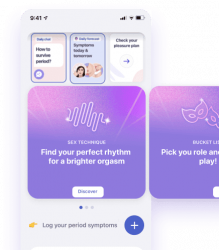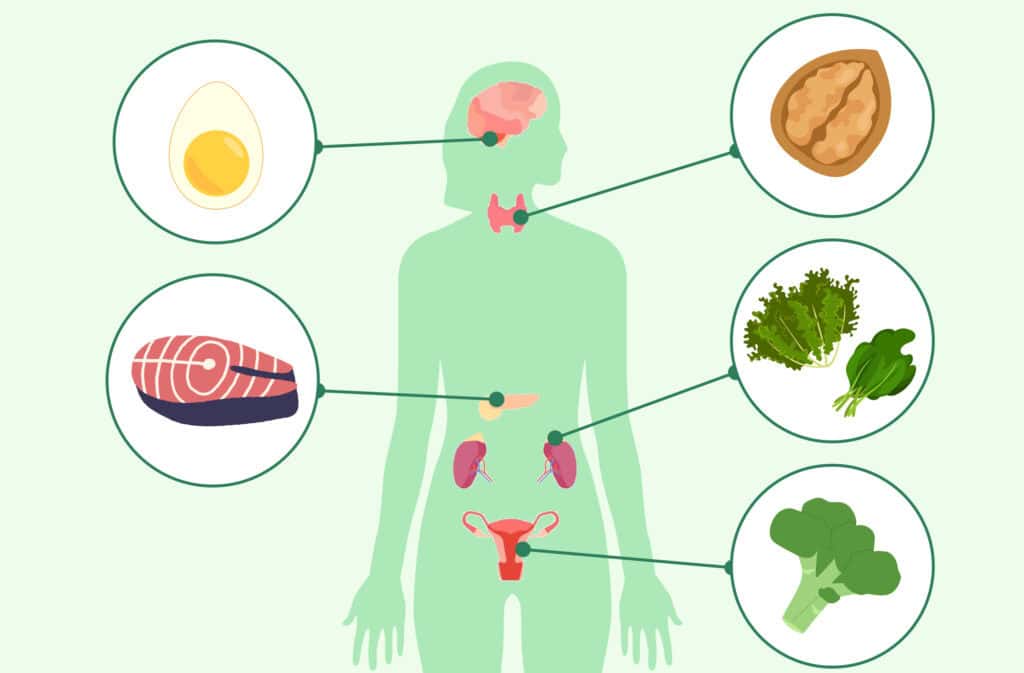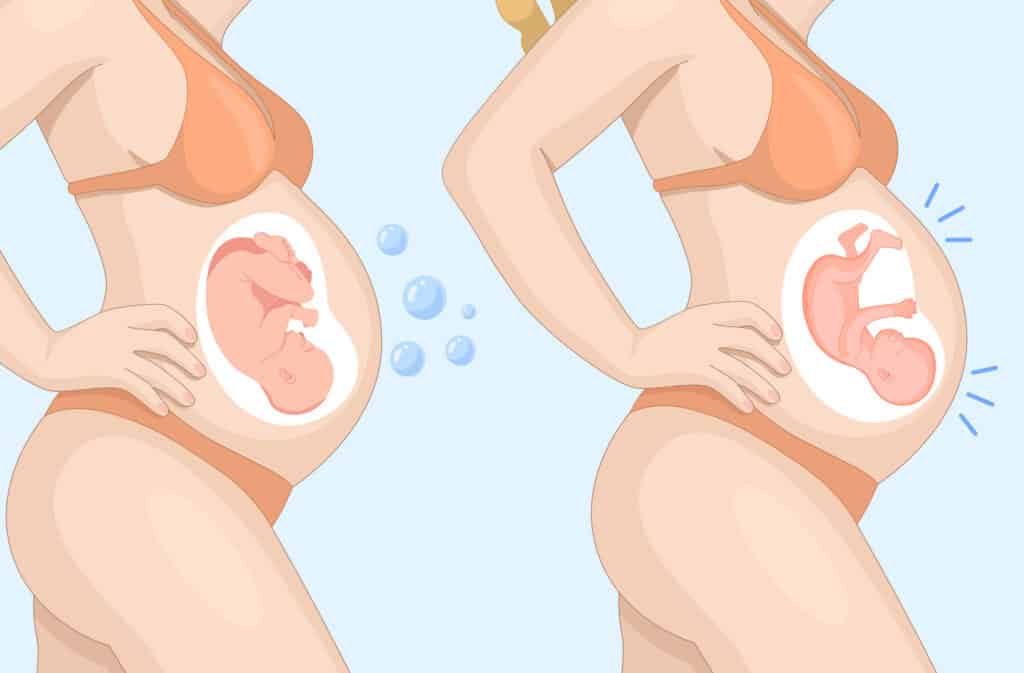Femia > Health Library > Being a mom > Recovering from birth > Breastfeeding and sex: Navigating changes
Breastfeeding and sex: Navigating changes

- Updated Mar 1, 2025
- Published
CRAFTED BY HUMAN
Crafted by human At Femia, we provide accurate and up-to-date information at every stage of your journey, from trying to conceive, pregnancy and postnatal support. All content is created by a real person based on in-depth research and own professional experience. Femia ensures that you will receive expert advice, strict accuracy and a personalized approach from our authors/medical experts. Learn more about our editorial policy.
FACT CHECKED
Fact checked At Femia Health, we maintain the highest standards of editorial excellence in delivering content focused on helping you conceive, guiding you through pregnancy, and supporting you postpartum. Explore our content review principles to learn how we ensure the accuracy and quality of our health and lifestyle tips for every stage of your journey.
After having a baby, it’s normal for your sex life to change, especially if you’re breastfeeding. Hormonal shifts, physical recovery, and fatigue can lower libido and make intimacy challenging. To navigate these changes, communicate openly with your partner, prioritize rest, and seek support. Understanding and patience are key as your body adjusts. With time and care, your sex life can return to a satisfying state.
Here’s one thing we know: It’s totally okay for your sex life to change once you’ve had a baby. Even though it doesn’t necessarily mean your libido will always be low and your sex life is significantly changed forever, it will probably require a bit more attention in the months after you give birth.
The recovery period after delivering a baby, hormonal changes, and sleepless nights—these are things you may have already heard of and expected. But, if you’re breastfeeding, there may be other intimacy changes you didn’t know about.
Your sex drive may be lower because of falling estrogen and progesterone levels. Plus, breastfeeding releases oxytocin, the same chemical that’s triggered when you have an orgasm, which may cause you to not feel the same need for sex.
The good news? It will get back to normal, and there are some things you can do to navigate these changes with less stress for you and your partner. So, does breastfeeding lower sex drive? Let’s explore why it does and how to improve your sex life after having a baby.
Does breastfeeding affect sex drive, and how?
The short answer is yes, it may affect your sex drive.
Although some women find themselves even more confident in sex after pregnancy, it is common to struggle with that part of your life because of a number of physical and emotional reasons:

Hormonal changes
Estrogen and progesterone—two hormones that impact libido—decrease after giving birth, enabling the hormones responsible for milk production to rise. This hormone decrease may also contribute to a range of other symptoms that affect sex life, including vaginal dryness, hot flashes, night sweats, and pain during sex.
While estrogen and progesterone levels decrease, oxytocin and prolactin go up. Oxytocin (also called our “happy hormone”) is released with the milk and triggers feelings of contentment and pleasure. This hormone is needed to help you feel extra connected with your baby during nursing sessions.
Oxytocin is also released during orgasm, which is what makes it feel so good and helps you connect with your partner. But, when it is being released through breastfeeding, your body might not feel the urge to seek it in other ways, like sex. Increased prolactin levels may also lower libido and affect ovulation triggers.
👉Find out more: Signs of ovulation after giving birth: What new moms need to know
Vaginal dryness and yeast infections
Aside from hormonal changes lowering your libido , they might also make sex less comfortable even when you feel up for it. That is because estrogen plays a crucial role in keeping the vaginal tissue well-lubricated and healthy. So, when estrogen levels drop, which happens during breastfeeding, the tissue becomes thinner and sometimes may even shrink, which often comes with vaginal dryness, pain during sex, and sometimes infections.
Common challenges and changes after birth
Every woman wrestles with the joys and struggles of life after giving birth. And, while welcoming a baby into this world may feel like a miracle, adjusting to this new life still takes time as well as physical and emotional effort.
Navigation through sleep schedules, breastfeeding, and occasional anxiety is accompanied by physical changes that often affect the new mother’s mood, health, and overall wellbeing.
Aside from hormonal changes, let’s explore other changes and challenges new mothers often face:
- Breastfeeding: even though your body releases happy hormones when you breastfeed, many new mothers find themselves dealing with physical discomfort. These may include sore nipples, engorged breasts, and the physical demands of breastfeeding—all factors that can make intimacy feel daunting or even painful.
- Extreme fatigue: This is also a significant factor that impacts a mother’s wellbeing and, therefore, her sex drive. Caring for a newborn is exhausting. With sleepless nights and the baby’s need to be constantly held, it leaves no energy for anything else—even taking a shower can feel like an impossible task. It’s completely normal to feel too tired for sex or any kind of intimacy when your body and mind are craving a well-deserved rest.
- Changed body image: Most mothers experience struggles with the way their bodies look after giving birth, which impacts their mental health and desire for intimacy. And, since bodies need exercise to get back to what they used to look like (which is not an option right after giving birth), mothers often need time to adjust and feel comfortable in their bodies again.
All these factors, combined with hormonal changes, lead to lower sex drive and mood swings postpartum. It’s important to remember that these feelings are entirely normal, and you are not alone. With time, proper communication, and help, all mothers find their way back to a satisfying and fulfilling sex life.

Sex while breastfeeding: considerations & useful tips
Breastfeeding is a significant phase in both mother and baby’s life, bringing about various changes to the body and daily routine. While navigating this new terrain, many couples wonder about the implications of sex during this period. Here are some practical considerations and tips to consider:
Milk leakage during sex
It’s common for breastfeeding mothers to experience milk leakage during sexual activity. That is because sexual arousal and orgasm trigger the let-down reflex, causing milk to flow.
Practical tips:
- Breast pads: wearing breast pads during sex may help manage unexpected leaks if they make you uncomfortable.
- Towels: keep a towel handy to quickly address any leakage.
- Timing: consider having sex after breastfeeding to minimize the chances of leakage.
Finding comfortable positions
Postpartum recovery and breastfeeding can be painful. So, new mothers may experience issues with having sex in the same positions they did before pregnancy.
Practical tips:
- Communication: try to openly discuss comfort levels and what you can and can’t do with your partner right now.
- Experiment: slowly try different positions to find what works for you. Side-lying positions may be less straining and more comfortable.
- Support: use pillows to support your body and relieve pressure on sensitive areas.
👉Find out more: Ten signs of pregnancy while breastfeeding
Dealing with breast sensitivity
Once you start breastfeeding, you may find that your breasts no longer give as much pleasure as they used to during sex. While it is normal for nipples to become more sensitive in the months of breastfeeding, it also may cause breasts to become over-sensitive, tender, or even sore.
It’s totally normal for breast stimulation to not feel as great as you want it to, so make sure your partner gets the message.
Practical tips:
- Gentle touch: ask your partner to be gentle with your breasts, avoiding any uncomfortable touches or rough handling.
- Boundaries: it’s okay to set boundaries about how and when your breasts are touched.
- Lubrication: using a water-based lubricant may be useful in case your breasts feel dry and uncomfortable.

Breastfeeding orgasm
Even though experiencing pleasure during breastfeeding seems taboo for some, it doesn’t mean it’s uncommon. In fact, the connection between sex and breastfeeding has long been studied with some interesting insights.
As we mentioned above, breastfeeding stimulates the release of the hormones oxytocin and prolactin. Since oxytocin is responsible for the let-down reflex, it causes breast milk to flow, which may feel like a tingling, warm sensation.
This incentive release of oxytocin also often causes satisfying, relaxing, and even pleasurable feelings—the same things that connect this hormone to love and sensuality.
👉Find out more: Understanding squirting: What it is, what it feels like, and how to do it
A breastfeeding orgasm may make you feel comfortable (and that’s okay!). But arousal, in that case, is a sign your hormones are doing what they should do. Oxytocin not only stimulates milk production as you breastfeed, but it also causes contractions to help your uterus to get back to its pre-pregnancy state.
Put this all together, add some nipple stimulation, and the potential for experiencing an orgasm from breastfeeding becomes a normal physiological process.
How to increase sex drive while breastfeeding
Breastfeeding sex may differ from what you’re used to because of hormonal changes, fatigue, and the physical results of your pregnancy. However, there are some tips you can consider to navigate your sex life while having a newborn:
1. Communicate with your partner
- Open dialogue: it is crucial to openly communicate with your partner about your feelings, worries, and any discomfort you might be experiencing. This is needed to develop understanding and emotional intimacy.
- Set realistic expectations: since you and your partner are now trying to adjust to new roles and responsibilities, being patient with yourself and setting realistic expectations about intimacy is important.
- Try scheduling intimate time: while it might sound boring and odd, schedules are something that may help you get back to sex life easier when having a newborn. Even some kind of intimacy will be enough to start with. Discuss when you both have time and energy for intimate moments.
- Non-sexual intimacy: even if sex isn’t an option for you yet, consider non-sexual forms of intimacy like cuddling, kissing, and holding hands. This helps partners to reconnect and pave a less pushy way for sexual intimacy.

2. Take care of yourself
- Prioritize rest: it’s easy to say you should find time for sleep and rest when caring for a baby, but fatigue significantly impacts libido, too. Consider asking for help, hiring a nanny, or sharing nighttime responsibilities with your partner so you can get enough rest for at least most of the week.
- Manage stress: you may want to try stress-reducing techniques like meditation, yoga, or deep breathing, as these help you relax and feel more in tune with your body.
- Body positivity: thank your body for carrying a child for nine months, and practice self-love. For example, having yoga practices and wearing comfortable, attractive clothing may help boost your confidence.
- Seek support: don’t hesitate to seek support from friends, family, or a professional psychologist when you’re feeling overwhelmed. Sometimes, talking about your feelings can significantly lighten the burden.
3. Try focusing on a healthy lifestyle
- Balanced diet: eating a healthy diet may seem impossible for a new mother. So, maybe you can consider including more nutritious foods that help you feel more energetic and support your wellbeing. Consider eating more nuts, vegetables, fish, leafy greens, red meat, and rice.
- Stay hydrated: drink plenty of water to stay hydrated, as dehydration can cause fatigue and affect your mood.
- Exercise regularly: regular physical activity, even walking around the house or outside with and without your baby, can help boost your mood, increase your energy levels, and enhance your libido.
Questions from the Femia community
How can I talk to my partner about changes in our sex life?
Choose a quiet, private moment to discuss the changes and your feelings about them. Approach the conversation with empathy and openness, explaining how your body has changed and what would make you comfortable now. Focus on understanding each other's needs and finding solutions together, whether it's about physical discomfort, emotional changes, or finding time.
Will my sex drive return to normal after I stop breastfeeding?
In general, hormones settle within a few months after you stop breastfeeding. If you manage to adjust to the new reality and do not have any complications with breastfeeding or pregnancy, your sex drive will likely get back to normal within a year after you stop breastfeeding.
Can breastfeeding make sex painful?
Yes, in some cases, it might cause pain because of sore breasts. So, asking your partner to be gentle with your breasts and avoiding positions where you may feel pain is the best way to prevent breastfeeding-related discomfort during sex.
Is it safe to have sex while breastfeeding?
Having sex while breastfeeding is generally safe, but you can consult a healthcare professional for personalized advice and answers if it’s still worrying you.
The bottom line
Breastfeeding can bring about hormonal changes that may affect sex drive, often leading to decreased libido for some women. Physical changes, such as tender breasts, vaginal dryness, and fatigue, are also common and can impact sexual activity.
All these changes are completely normal and understandable, as well as all the challenges a new mother faces daily. While having a low sex drive postpartum is normal, there are still some things you may want to do to improve your sex life. Consider asking for help to have some time to relax, eat more nutritious foods, and talk to your partner so you can both understand these new changes and find time for intimacy.
References
- “Low Sex Drive in Women – Symptoms and Causes.” Mayo Clinic, www.mayoclinic.org/diseases-conditions/low-sex-drive-in-women/symptoms-causes/syc-20374554#:~:text=But%20some%20have%20a%20lagging. Accessed 22 July 2024.
- Hendrick, Victoria, et al. “Hormonal Changes in the Postpartum and Implications for Postpartum Depression.” Psychosomatics, vol. 39, no. 2, Mar. 1998, pp. 93–101, www.sciencedirect.com/science/article/pii/S0033318298713556, https://doi.org/10.1016/s0033-3182(98)71355-6.
- Information, National Center for Biotechnology, et al. The Physiological Basis of Breastfeeding. Www.ncbi.nlm.nih.gov, World Health Organization, 2009, www.ncbi.nlm.nih.gov/books/NBK148970/#:~:text=FIGURE%205-.
- Olff, Miranda, et al. “The Role of Oxytocin in Social Bonding, Stress Regulation and Mental Health: An Update on the Moderating Effects of Context and Interindividual Differences.” Psychoneuroendocrinology, vol. 38, no. 9, 1 Sept. 2013, pp. 1883–1894, www.sciencedirect.com/science/article/pii/S0306453013002369, https://doi.org/10.1016/j.psyneuen.2013.06.019. Accessed 12 Apr. 2020.
- Cleveland Clinic. “Estrogen: Hormone, Function, Levels & Imbalances.” Cleveland Clinic, Cleveland Clinic, 2 Aug. 2022, my.clevelandclinic.org/health/body/22353-estrogen.
- Henderson, Jane, et al. “Factors Associated with Maternal Postpartum Fatigue: An Observationalstudy.” BMJ Open, vol. 9, no. 7, 27 July 2019, www.ncbi.nlm.nih.gov/pmc/articles/PMC6661702/#:~:text=Postpartum%20fatigue%20(PPF)%20has%20been, https://doi.org/10.1136/bmjopen-2018-025927.
- NHS Choices. Sleep and Tiredness after Having a Baby. 2024, www.nhs.uk/conditions/pregnancy-and-baby/sleep-and-tiredness/. Accessed 22 July 2024.
- “How Will My Body Change after Pregnancy?” Mayo Clinic Press, 7 July 2023, mcpress.mayoclinic.org/pregnancy/how-will-my-body-change-after-pregnancy/#:~:text=Your%20belly%20may%20have%20a. Accessed 22 July 2024.
- Barrett, Geraldine, et al. Archives of Sexual Behavior, vol. 28, no. 2, 1999, pp. 179–191, link.springer.com/article/10.1023/A%3A1018771906780, https://doi.org/10.1023/a:1018771906780. Accessed 4 Jan. 2020.
- Information, National Center for Biotechnology, et al. The Physiological Basis of Breastfeeding. Www.ncbi.nlm.nih.gov, World Health Organization, 2009, www.ncbi.nlm.nih.gov/books/NBK148970/#:~:text=FIGURE%205-.
- Polomeno, Viola. “An Independent Study Continuing Education Program—Sex and Breastfeeding: An Educational Perspective.” Journal of Perinatal Education, vol. 8, no. 1, 1 Jan. 1999, pp. 29–42, https://doi.org/10.1624/105812499×86962.

Discover natural strategies, tips, and medical guidance on how to balance your hormones in a week with diet, lifestyle, self-care tips, and supplements.

Learn to distinguish between gas bubbles and baby movements during pregnancy. Understand key differences, timing, and when to consult your doctor. Expert advice from Femia.

Learn how to perform reverse Kegels to effectively relax your pelvic floor muscles: Step-by-step techniques, benefits, and tips for these exercises for pelvic health.

